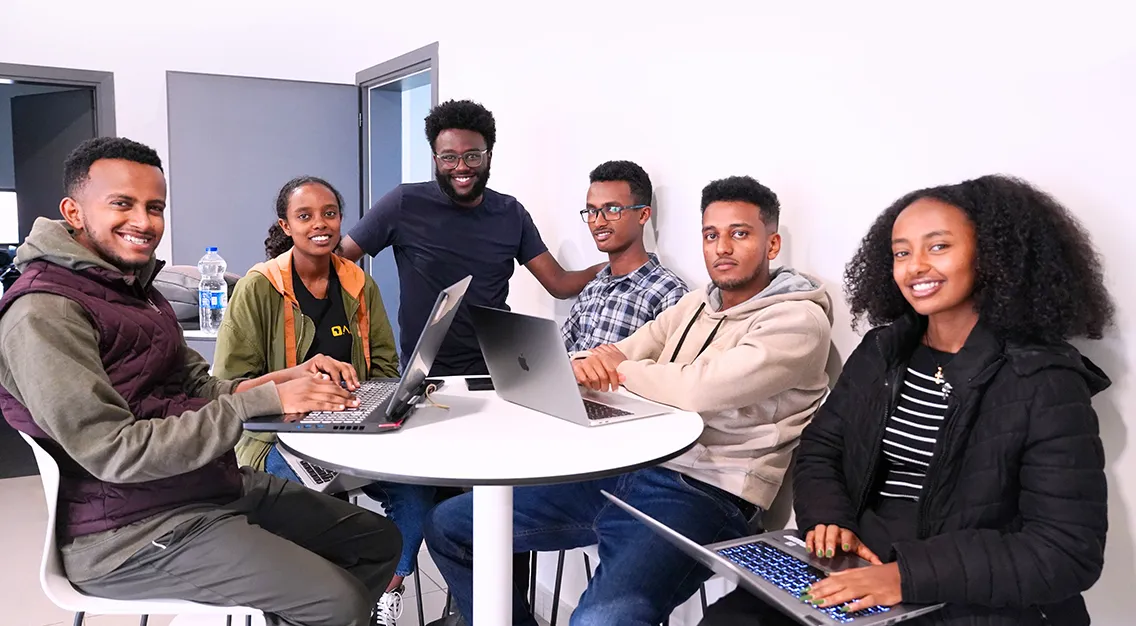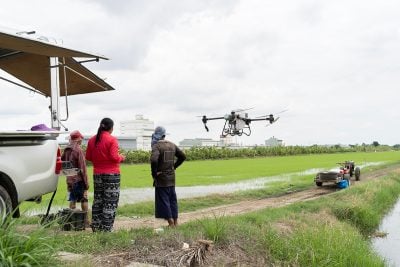This article was produced with the support of A2SV
The digital skills gap that Africa faces is especially significant at the highest echelons of expertise. Addressing this gap is critical, not just for Africa’s tech aspirations but for global technological equity. For years, development efforts have focused on providing foundational skills to expand access to technology, which is undeniably important. However, we must now ask ourselves a pivotal question: who will lead Africa’s digital revolution?
It is not enough to have users of technology; we must cultivate creators—visionaries who will architect systems, design solutions, utilise AI and spearhead innovation tailored to the continent’s unique challenges. This is where A2SV | Africa to Silicon Valley steps in.
Building the top of the pyramid
“Africa has an abundance of talent, but talent alone is not enough. Without access to world-class education and opportunities, potential remains untapped,” says Emre Varol, founder and CEO of A2SV. “At A2SV, we focus on the apex of the talent pyramid. Our mission is to train and empower Africa’s brightest minds to lead the digital revolution and create solutions for local challenges.”
Over the past five years A2SV has demonstrated how strategic investment in top-tier talent can ripple across ecosystems. Each year, students in A2SV’s rigorous two-year programme receive over 1000 hours of training, encompassing advanced software engineering, problem-solving, and real-world project development.
This is complemented by training in soft skills such as communication, planning, prioritisation, and leadership – essential skills for thriving in a competitive global tech landscape. Graduates emerge not only as world-class engineers but also as leaders equipped to manage teams, make strategic decisions, and drive innovation.
The programme’s self-sustaining structure is a key element of its success. The best-performing graduates from each generation become instructors for the next cohort, ensuring the continuous transfer of knowledge and fostering a sense of community leadership. This cyclical model allows A2SV to scale sustainably while maintaining the highest standards of education.
Innovation for Africa, by Africa
The impact of bridging the top-level skills gap is immediate and transformative. A2SV doesn’t just train engineers; it incubates innovation. For instance, one of its standout projects, Eskalate, connects top African developers with global opportunities. Now generating a consistent six-figure annual revenue, Eskalate provides a clear example of how African talent can meet global demands for affordable, high-quality expertise. Other projects, like Adot and SkillBridge, tackle challenges in healthcare and education, proving that African talent can create solutions for Africa.
“At A2SV, we view our graduates as change agents,” says Varol. “They are not just building careers; they are building Africa’s digital future. Every line of code they write is a step towards solving challenges that have persisted for generations.”
This innovation-driven approach aligns with global conversations about the role of technology in sustainable development. As highlighted at Davos, transformative technologies are key to addressing critical issues like climate resilience, healthcare access, and education equity. Africa, with its burgeoning youth population and entrepreneurial spirit, holds the key to many of these solutions—if its talent is empowered to rise.
Stabilising migration through opportunity
The ripple effects of A2SV’s work extend beyond the tech sector. By providing meaningful, high-value opportunities locally, the programme mitigates the push factors that often lead to migration.
Talented Africans no longer need to leave their homeland to seek opportunities; instead, they can build impactful careers while contributing to the development of their communities. “Migration doesn’t always have to mean leaving Africa,” says Varol. “It can mean moving from rural to urban, from untapped potential to innovation hubs. Our goal is to create a self-sustaining ecosystem where talent thrives locally, reducing brain drain and stabilising communities.”
The call to action: invest in Africa’s future
Despite our successes, A2SV and initiatives like it face significant challenges in securing the financial support needed to scale their impact. As the world gathers in Davos to discuss global innovation, we must recognise that Africa’s problems cannot be solved from a distance.
Development partners and investors need to establish a stronger presence on the ground, working collaboratively with local talent to address challenges from within.
Stabilising migration is a key outcome of these efforts. As long as Africa’s youth face limited opportunities, they will seek better prospects elsewhere. But with the right investment, we can create a thriving ecosystem where talent stays, grows, and transforms the continent.
The potential is undeniable. Africa’s tech talent can drive global innovation, stabilise economies, and create solutions that resonate far beyond its borders. But this requires investment – not just in infrastructure but in people. As Varol aptly puts it, “If you want to change a continent, invest in its brightest minds.”

 Sign in with Google
Sign in with Google 



